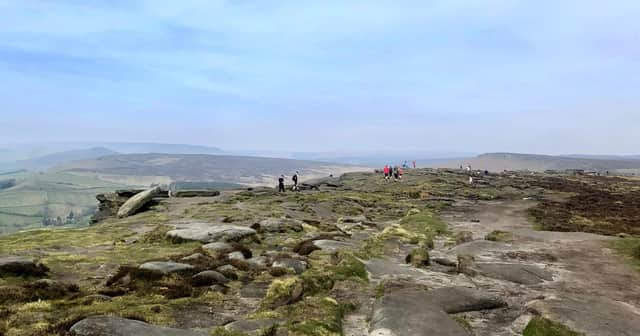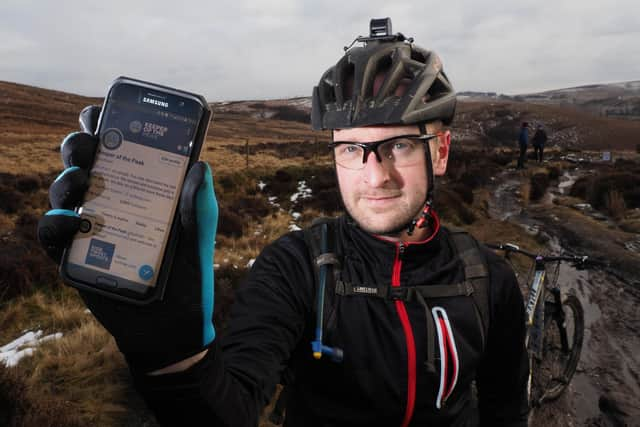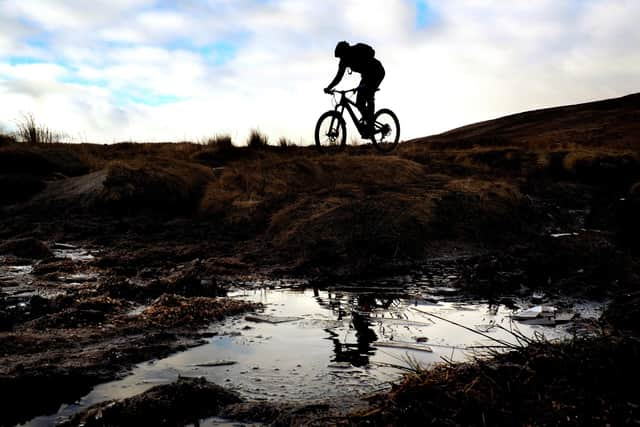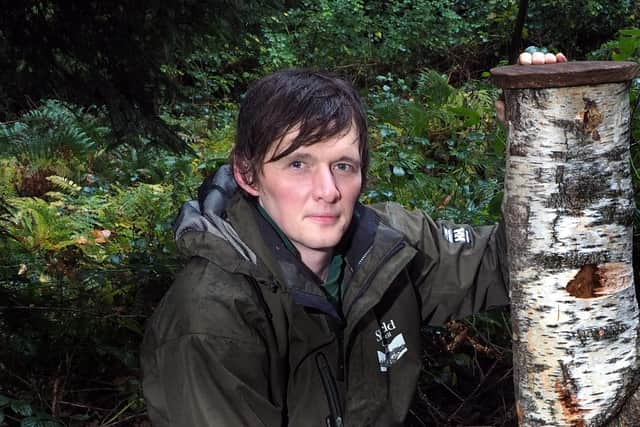Boggy moors continue to capture and store carbon


Sheffield Council ranger Matt Coster said the hot summer saw thousands of people exploring seldom-used trails on Sheffield’s moors and woodlands. Those trails were dry and easy to use back then. But not now.
“It’s been one of the driest summers we’ve ever seen, and combined with the increase in people going out into our countryside over the Covid lockdowns, we’ve seen a lot more people in the outdoors, we’ve seen paths and trails used more, and eroded more,” he said.
Advertisement
Hide AdAdvertisement
Hide AdBut our bogs are very important, he added. The Peak District’s peat and moorland bogs already store around 20 million tonnes of CO2, which is around ten years’ worth of carbon emissions from the city of Sheffield. And in good condition, those boggy moors around the city will continue to capture and store carbon for many years to come.


“If this city is trying to fight the climate emergency, the bog is one of the key things it has to do just that,” says Matt.
But that mud is fragile: exposed mud and peat will dry out in hot summers, with the CO2 stored within it eroding into the air. Then in wet winters, exposed peat can stream away into nearby rivers, lakes and reservoirs, taking stored carbon with it.
If we widen our moorland trails, it allows even more peat and mud to erode, and it also leaves less space for wildlife, making breeding harder for rare birds like curlews, for example.
Advertisement
Hide AdAdvertisement
Hide AdSo Matt and colleagues are asking us to stick to the main paths when we’re out at the moment, no matter how muddy they are: we have the fell shoes and walking boots designed for the task, he says, so why avoid the mud anyway?


Diverting onto drier heather or woodland verges leads others to follow, and to erode the moorland even more. In woodland, you might also be trampling down rare wild flowers waiting for the spring to arrive.
Mountain bikers are already addressing these issues, with advice from organisations like Ride Sheffield and Keeper of the Peak to consider where you go before you even head out there, and consider heading to rocky trails like Houndkirk, drier byways and bridleway trails in our woodland, or the gritstone edges on wet winter days.
The Peak District MTB advocacy group is going one step further by suggesting a ‘Trail Pot’ idea, where mountain and gravel bikers, and the outdoors industry generally, could make regular small payments into a national fund to help build and maintain trails, and liaise for more trail access with landowners.
Advertisement
Hide AdAdvertisement
Hide Ad"The Trail Pot proposal is an idea to raise money more effectively, consistently and at scale - but not with a heavy financial ask of the community,” said Chris Maloney, Chair of Peak District MTB, adding that if enough people sign up to make ‘microdonations’ of a few pounds or even pennies every week or month, the whole country will benefit from more and improved trails for walkers, runners and off-road cyclists that both improve access and conserve the landscape to benefit wildlife and the climate emergency.


“With more people competing for time on the same patch of dirt, it’s perhaps inevitable that there will be an increase in impacts on the trails. So two things emerge: we all need more space, and we all need to consider and mitigate our impact.”
The Sheffield-based Ride Sheffield group have successfully trialled a similar idea locally, with bikers and local companies helping fund materials for their trail maintenance teams. But Chris Maloney hopes the Trail Pot scheme could help preserve and build trails across the UK. Get in touch at https://peakdistrictmtb.org if interested, he says.
Conservationists like Matt Coster say we all need to think about taking care of the muddy trails across the city’s bogs.
“These wetlands are really important, and we need to keep them, and create more of them really,’ he says.